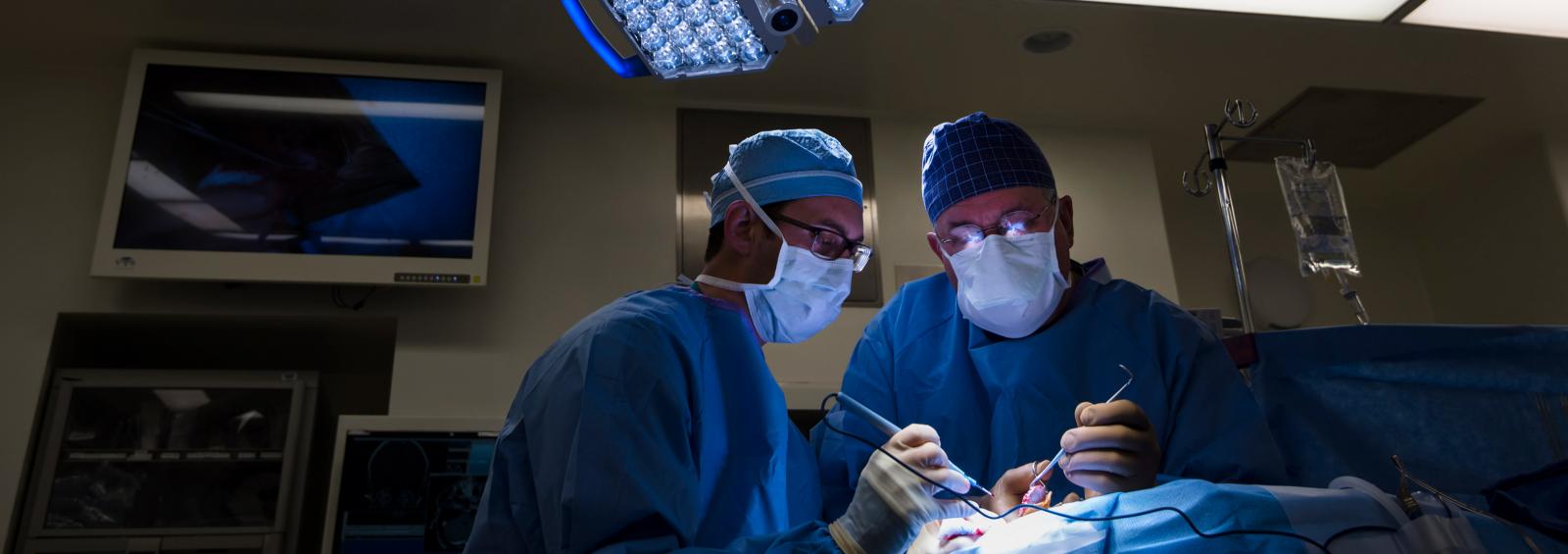Why ENT Clinics Provide Comprehensive Allergy and Sinus Care
Checking out the Field of Otolaryngology: What to Expect When You Speak With an ENT
Otolaryngology, typically referred to as ENT, incorporates the medical diagnosis and therapy of throat, nose, and ear disorders. For those experiencing related issues, seeking advice from an ENT specialist can provide quality and relief. Understanding what to anticipate during such examinations is important for efficient communication and care. This introduction will detail key facets of the ENT experience, including typical reasons for sees and the procedures associated with diagnosis and therapy.

Understanding Otolaryngology: An Overview
Otolaryngology, frequently referred to as ENT (Throat, ear, and nose) medication, is a specialized branch of medication that focuses on the diagnosis and treatment of problems impacting these crucial areas of the human body. This area encompasses a vast array of problems, consisting of those pertaining to hearing, equilibrium, respiratory feature, and speech. Otolaryngologists are trained to handle both surgical and medical therapies, using sophisticated techniques and innovations. Their competence expands beyond typical disorders, dealing with problems such as allergies, sinus infections, and hearing loss. Furthermore, they play an important duty in the monitoring of head and neck cancers cells, providing thorough treatment customized to specific patient requirements. Generally, otolaryngology remains vital for maintaining wellness and lifestyle in affected people.
Usual Factors to See an ENT Professional
Many people seek the expertise of an ENT professional for a range of reasons, reflecting the diverse nature of conditions that influence the ear, nose, and throat. Typical problems consist of persistent sinus problems, which usually causes relentless nasal blockage and face pain. Allergies and their connected symptoms, such as sneezing and itching, also prompt brows through to these professionals (Otolaryngologist). Hearing loss, whether abrupt or steady, is an additional significant factor for examination. Furthermore, individuals might seek evaluation for throat disorders, consisting of persistent hoarseness or ingesting difficulties. Sleep apnea, characterized by cut off breathing throughout sleep, is frequently attended to by ENT specialists. Each of these problems highlights the value of specialized care in managing complicated ENT-related health concerns
Preparing for Your ENT Appointment
When planning for an ENT appointment, it is vital to gather relevant information and consider any particular worries. Patients need to compile a detailed case history, including previous ear, nose, or throat problems, surgical treatments, and existing drugs. Recording signs and symptoms-- such as regularity, period, and extent-- can supply useful insights for the ENT professional. Furthermore, people ought to prepare a listing of inquiries they wish to ask, making certain that all problems are resolved during the go to. Bringing along any type of relevant clinical records or examination outcomes can better aid the ENT in comprehending the individual's problem. Individuals ought to confirm their consultation information, consisting of date, time, and location, to decrease any type of final confusion. Correct preparation can boost the performance of the assessment and result in much better end results.
What to Anticipate During the Consultation
As the appointment starts, the client can expect to involve in a thorough discussion with the ENT professional about their signs and symptoms and case history. The expert will certainly ask about the duration, frequency, and extent of signs such as hearing loss, nasal congestion, or sore throat. Additionally, the patient's previous medical problems, drugs, and any type of pertinent family background will certainly be reviewed, aiding the professional in forming a full understanding of the person's wellness. The ENT may likewise inquire about way of life factors, such as direct exposure to allergens or toxic irritants. This open dialogue establishes a structure for the assessment, ensuring that the client's problems are addressed and establishing the stage for any necessary analyses or suggestions for therapy.
Diagnostic Examinations and Procedures in Otolaryngology
A series of diagnostic examinations and procedures are crucial in otolaryngology to accurately review and diagnose conditions impacting the ear, throat, and nose. Typical tests consist of audiometry, which measures hearing feature, and tympanometry, assessing middle ear pressure. Nasal endoscopy enables visualization of the nasal flows and sinuses, while laryngoscopy checks out the throat and singing cables. Imaging strategies, such as CT scans and MRIs, give detailed views of head and neck frameworks. Allergic reaction screening might also be conducted to determine triggers for sinus or respiratory problems. These diagnostic tools enable ENT professionals to create an extensive understanding of people' conditions, guaranteeing customized and effective administration strategies. Correct medical diagnosis is essential for successful therapy outcomes in otolaryngology.
Therapy Alternatives Offered by ENT Specialists
ENT professionals offer a variety of treatment options customized to attend to details conditions impacting the throat, nose, and straight from the source ear. These therapies range from conservative approaches, such as drug and way of life alterations, to even more intrusive treatments. For example, allergies may be managed with antihistamines or immunotherapy, while persistent sinus problems could call for nasal corticosteroids or sinus surgical treatment. For hearing loss, ENT professionals frequently advise hearing aids or medical treatments like cochlear implants. In cases of throat problems, choices can include speech therapy or procedures to remove blockages. In addition, they may offer support for taking care of rest apnea, including making use of CPAP devices or medical treatments. Overall, the objective is to improve patients' quality of life through customized treatment and reliable therapy strategies.
When to Look For Follow-Up Care With an ENT
When to seek follow-up care with an ENT specialist is important for taking care of recurring signs or complications connected to ear, throat, and nose problems, identifying. People ought to think about scheduling a follow-up visit if signs and symptoms continue regardless of preliminary treatment, such as persistent ear pain, nasal blockage, or throat pain. Changes in hearing, balance issues, or unusual nasal discharge may likewise require further assessment. Additionally, if a patient experiences adverse effects from recommended drugs or has actually undergone a surgical treatment, follow-up treatment is necessary to check recovery and resolve any type of problems. Prompt appointments can assure efficient administration of conditions, avoid potential issues, and offer assurance pertaining to one's wellness. Seeking follow-up treatment promotes positive health monitoring in otolaryngology.
Regularly Asked Questions

What Certifications Should I Seek in an ENT Specialist?
When seeking an ENT expert, one ought to seek board accreditation, relevant experience, and strong individual evaluations. Additionally, efficient communication ite hearing aid skills and a thoughtful technique can greatly boost the general therapy experience.
Just how Do I Choose the Right ENT for My Demands?
Choosing the ideal ENT professional involves assessing their credentials, experience, and person evaluations (ENT Doctor). It is vital to ponder their communication style and method to therapy, guaranteeing they align with the individual's certain wellness demands and preferences
Are There Any Type Of Risks Connected With ENT Procedures?
The threats associated with ENT treatments might consist of infection, bleeding, anesthetic problems, and prospective damage to bordering frameworks. Clients must go over these risks with their doctor to recognize individual concerns and warranty educated choices.
Just How Can I Take Care Of Anxiousness Prior To My ENT Visit?
To handle stress and anxiety prior to a visit, individuals can exercise deep breathing exercises, visualize favorable end results, prepare concerns ahead of time, and look for support from good friends or household, fostering a sense of confidence and calmness.
What Should I Do if I Experience Adverse Effects From Therapy?
The individual should promptly report them to their health care supplier if side effects from therapy happen. Adjustments to therapy or additional interventions may be necessary to assure security and effectiveness in managing their problem - ENT. As the assessment starts, the individual can anticipate to engage in a complete conversation with the ENT specialist about their signs and medical history. These diagnostic tools allow ENT specialists to create a thorough understanding of people' conditions, making certain customized and effective management strategies. ENT professionals supply a range of treatment choices customized to deal with details conditions impacting the nose, throat, and ear. When looking for an ENT visit our website specialist, one must look for board certification, appropriate experience, and solid client testimonials. Choosing the ideal ENT specialist entails assessing their credentials, experience, and patient testimonials